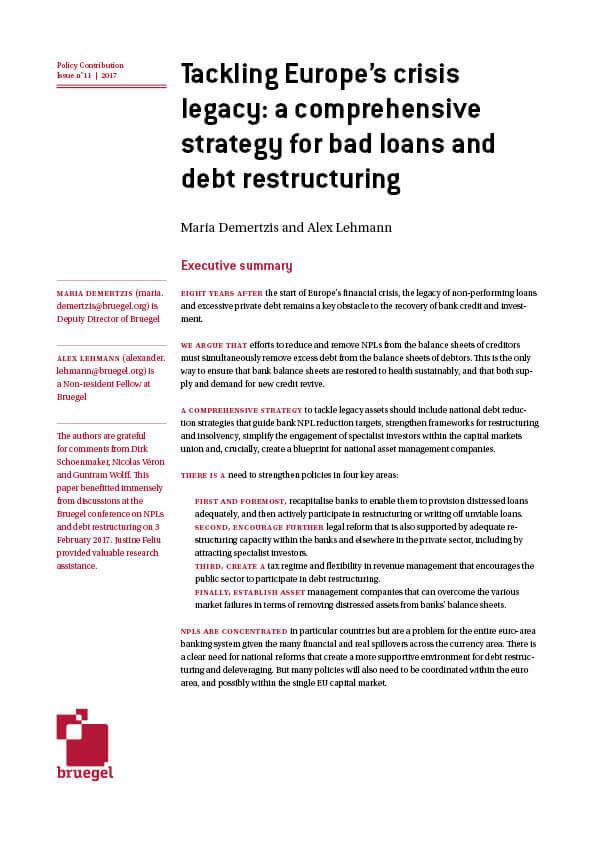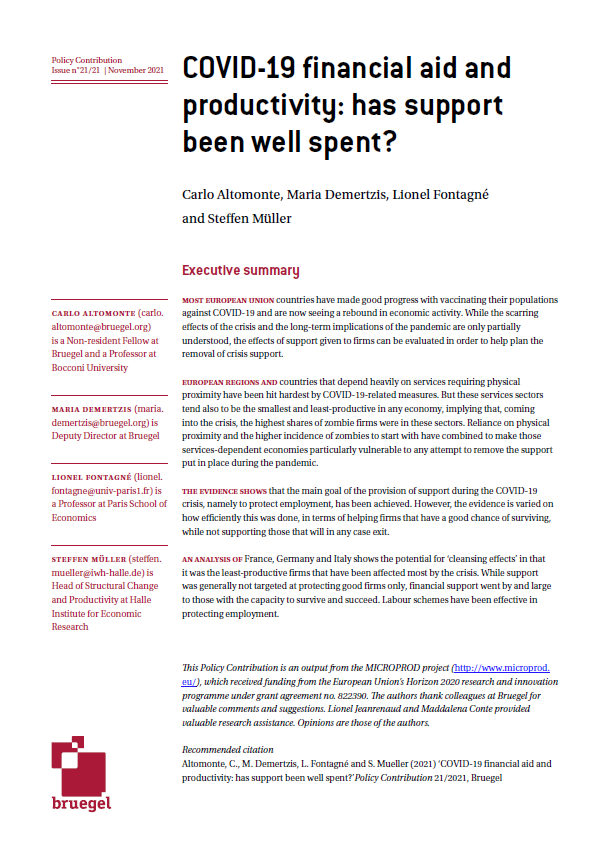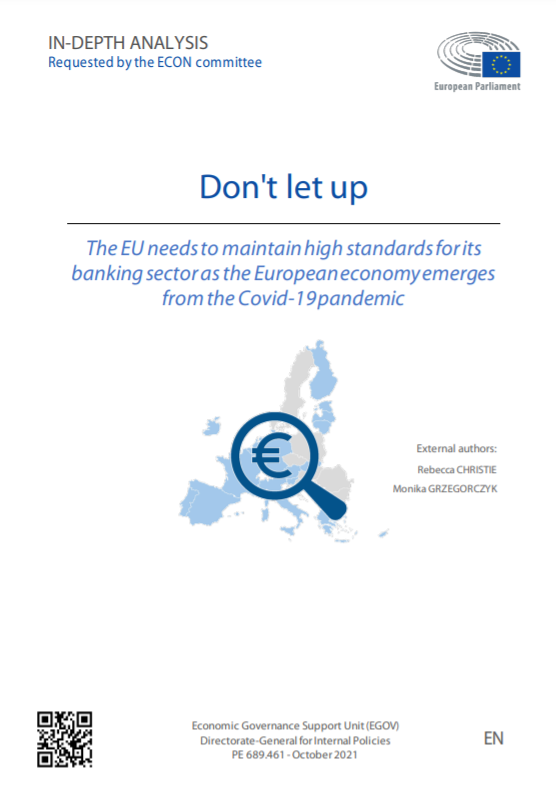Policy Contribution
Tackling Europe’s crisis legacy: a comprehensive strategy for bad loans and debt restructuring
Years after the start of the financial crisis, non-performing loans and private debt remain obstacles to the recovery of bank credit and investment.
Eight years after the start of Europe’s financial crisis, the legacy of non-performing loans and excessive private debt remains a key obstacle to the recovery of bank credit and investment.
The efforts to reduce and remove NPLs from the balance sheets of creditors must simultaneously remove excess debt from the balance sheets of debtors. This is the only way to ensure that bank balance sheets are restored to health sustainably, and that both supply and demand for new credit revive.






















